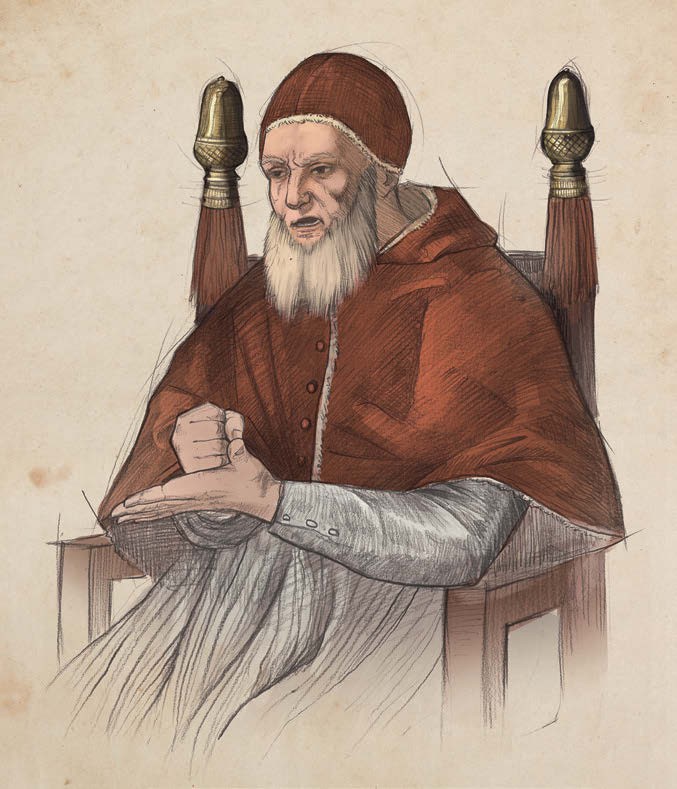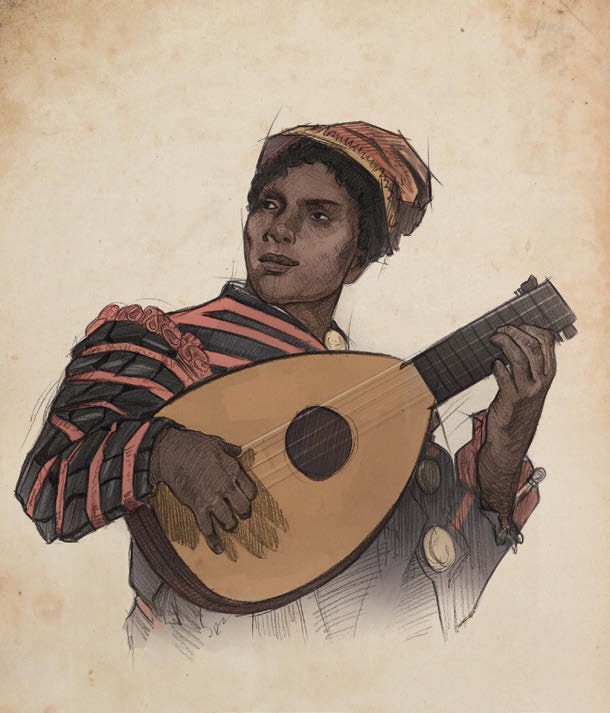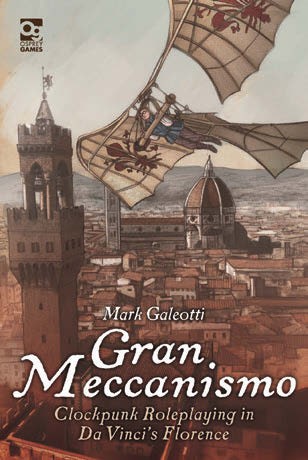The Da Vinci Code
GRAN MECCANISIMO
Designer: Osprey Games | Publisher: Mark Galeotti
A clockpunk RPG set in Renaissance Italy. The idea is so simple it’s a wonder there aren’t dozens of them. If we boil it down to its most basic ingredients, Gran Meccanisimo is a somewhat open sandbox playable across all of Italy but puts most of its attention to Leonardo Da Vinci’s hometown of Florence which has flourished thanks to his creations. From gliders and tanks to automatons and the mysterious Gran Meccanisimo itself, the world is changing and players are thrust into dangerous new stories that range from somewhat straight-faced historical intrigue to over the top cyberpunk style sticking it to the uomo.

Gran Meccanisimo promotes this range well by providing the GM with everything needed to understand the world and setting, even if they’ve never cared much for Renaissance Italy. Some readers may find the setting portion of the book a bit dull at parts, especially when it goes out of its way to explain real historical city relationships and events instead of the infinitely more interesting clockwork death machines but it does all come in useful when running a campaign. With information on the last of the Holy Roman Empire, what Venice is up to, the war in Spain, and dozens of Italian cities described and advice given on how to incorporate them into the world, even a layperson is able to get to the grips without busting out the history books or Assassins Creed 2.

Interestingly, especially for a game that seems so interested in being accurate to the times, Gran Meccanisimo essentially holds a big sign saying that players should ignore the biases of the time which is very refreshing to see in a somewhat historical RPG. Women, people of colour, and people of non-Christian religions are explicitly made equal thanks to the new technology and social shifts it has brought with it.
Mechanically, Gran Meccanisimo works off of a D6 dice pool with each of your Stats (Mind, Body, and Soul) having a base value and each Skill, Trait, or even Gear having a number of dice associated with it. Much like Vampire The Masquerade but with a lot more freedom to determine what your Skills are. So instead of VTM’s Computer skill, you might say your dashing venitian spy has the Find An Opening skill, which you just make up and define whenever you try to use it. That skill could then be interpreted as finding an opening in a fight or a conversation and depending on what stat you put it under, that helps to flavour how your character does it. Under Mind, it may be through a keen eye or charm; under Body it likely means with some force or physicality, while Soul may involve a little bit of luck or divine interference.

Thanks to this open and story focused skill system, characters are somewhat capable from the get-go which skips that whole first level slog that many RPGs are mired in. To help offset this worry, it is worth knowing that players are encouraged to put forth how their Traits may hinder them in a scene as a way to gain advancements at the end of the session. In play, this created some amazing moments as players were awarded for taking risks, making mistakes, and adding to the difficulty or tension of a scene rather than just trying to find the optimal solution.
Setting wise, Gran Meccanisimo is sometimes dry but surprisingly easy to understand and run with plot hooks and characters erupting out of the world like water from a freshly hacked clock-lock but where it truly shines is its system which can easily be adapted to any setting.
CHRISTOPHER JOHN EGGETT
WE SAY
If you like chucking lots of dice and wish Leonardo Da Vinci’s inventions had worked then this is the game for you.
TRY THIS IF YOU LIKED VAMPIRE THE MASQUERADE
Both games put a focus on player individuality and the dangerous politics between mysterious powers.